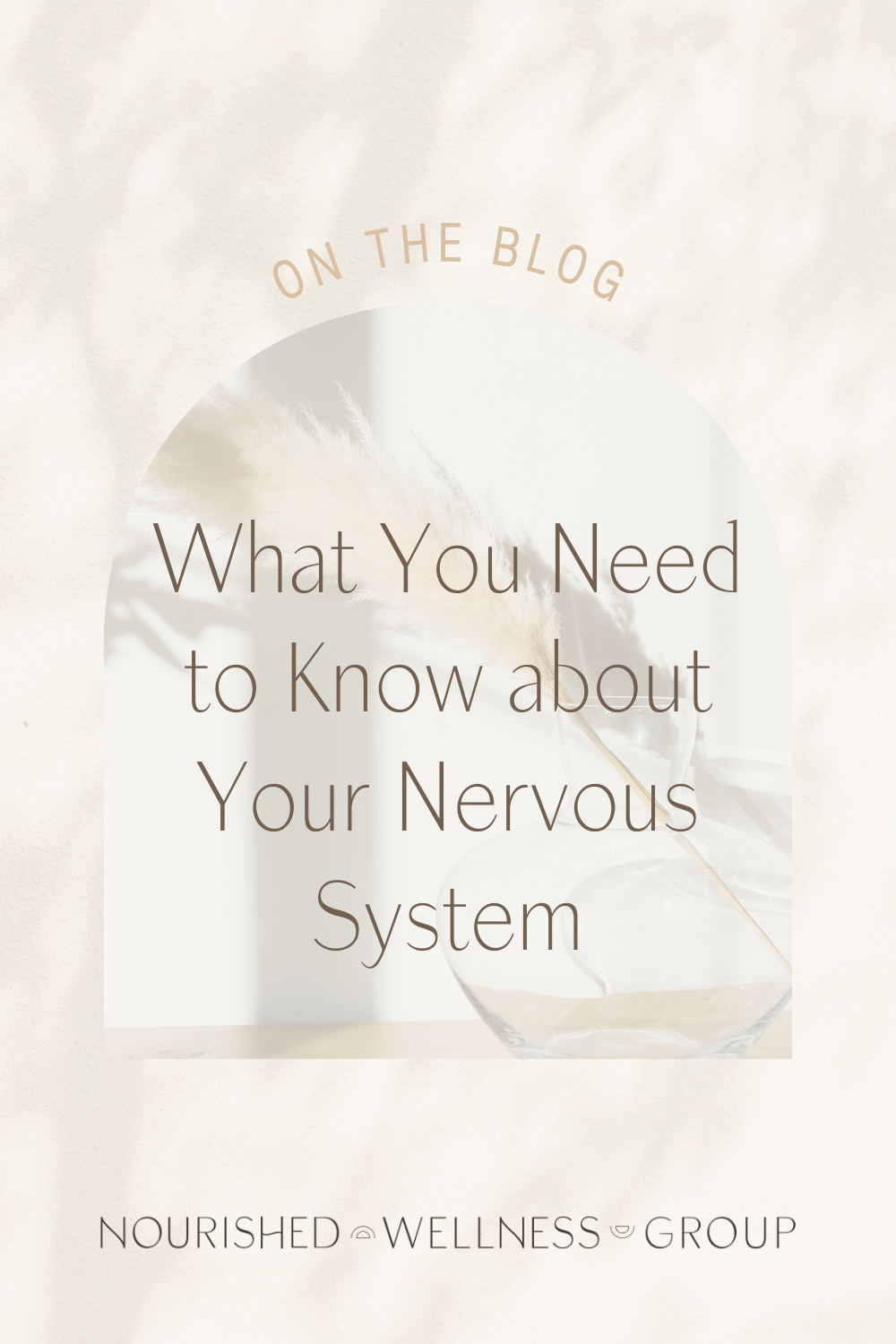Your Nervous System
How does our nervous system affect us?
Our nervous systems allow us to respond to changes in our bodies and in our environment. In order to do so, it is constantly scanning for cues of safety and cues of danger. This is an older evolutionary system that is responsible for our survival instincts.
Think of it this way, if a lion jumped out from behind a bush – your nervous system would cue danger and you would react instantly (i.e. our stress responses). You may feel uneasy around bushes or anything associated with that memory and experience.
Nowadays, there are many nuances and layers to stressors and our nervous system can start to misread cues over time.
A video exploring our different nervous system states, the impact of trauma and chronic stressors on our nervous system, and ways to heal from trauma.
A healthy nervous system is flexible, can easily move from state to state, and even blend states together.
Nervous system dysregulation is a normative human experience! If you are interested in learning more about how to regulate your nervous system, reach out!
So, why is learning about our nervous systems important?
Depending on your nervous system’s interpretation of safety and danger determines your internal state. Take anxiety for example, we often experience symptoms of anxiety in the mobilized state (sympathetic activation). Our nervous system is sending information to our bodies and our brains that something isn’t right, that something isn’t safe. Not only do our thoughts change when we experience anxiety, but our body responds as well! You may notice your heartbeat racing, starting to sweat, or shaking. You are moving into a fight or flight response, even if the cues that your nervous system is responding to aren’t life threatening.
Our mind and body responses to our nervous system states happen in part due to the vagus nerve. This is the longest cranial nerve that runs down from our brains into our heart, lungs, gut, throat, eyes, and ears. The vagus nerve is responsible for the regulation of internal organ functions, such as digestion, heart rate, and respiratory rate, as well as vasomotor activity, and certain reflex actions, such as coughing, sneezing, swallowing, and vomiting (Breit, Kupferberg, Rogler and Hasler, 2018).
Chronic Stressors
Chronic stressors can lead to faulty nervous system detection. These can be:
Emotional stress
Environmental stress
Financial stress
Relational stressors (stressful relationships, caregiving)
Work stressors
Even reading cues of danger from neutral or positive stimuli. The more we move into sympathetic activation or dorsal vagal states, the easier they are to get stuck in.
If you are reactive to things that aren’t logical, you’re not crazy! Your nervous system is over-functioning.
Our minds and bodies are capable of great healing and our nervous systems can become regulated again. Feeling at home and safe in our own minds and bodies is a gift that keeps on giving, it allows us to experience our inner and outer experiences with ease.
References:
Breit, S., Kupferberg, A., Rogler, G. and Hasler, G., 2018. Vagus Nerve as Modulator of the Brain–Gut Axis in Psychiatric and Inflammatory Disorders. Frontiers in Psychiatry, 9.
Pin This Post!
Related Posts
If this post was helpful, you might also like these…








Wondering if therapy is right for you—even if you're high-functioning? At Nourished Wellness Group, we specialize in holistic therapy in Encinitas and virtual therapy across California. Learn the subtle signs that therapy can help, especially if you're navigating stress, anxiety, or burnout while appearing “fine” on the outside. Discover how nervous system-informed care can support deep, sustainable healing.